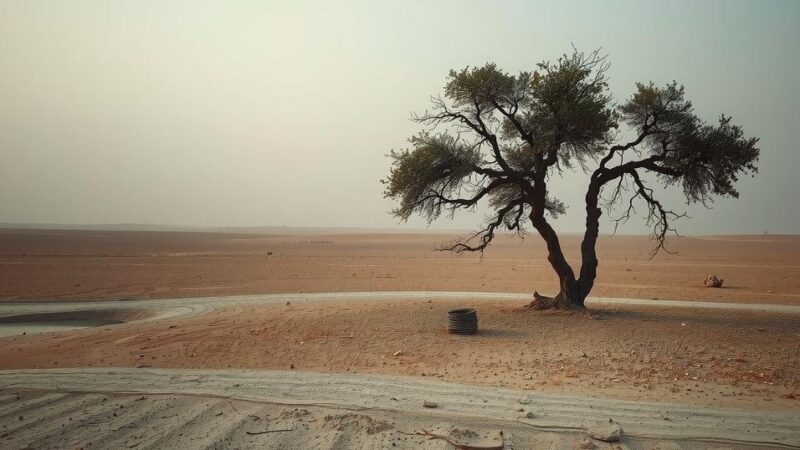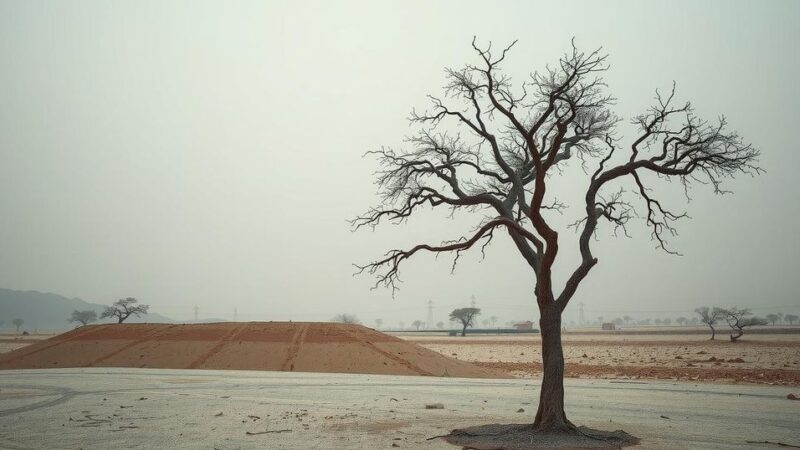The Sahel region in Africa faces security challenges, prompting countries like Chad and Nigeria to seek military aid from China, as anti-Western sentiments rise. Chinese Foreign Minister Wang Yi recently pledged military assistance and training, aiming to take advantage of the declining French presence and enhance China’s influence in the region through strategic partnerships.
Africa’s Sahel region, stretching from the Atlantic to the Red Sea, faces significant insecurity and rising anti-Western sentiments, presenting potential opportunities for China. Recently, Chinese Foreign Minister Wang Yi visited the region, pledging military aid, coinciding with incidents that underscore the ongoing volatility. His trip, which included military cooperation agreements, represents a strategic shift in China’s engagement from economic pursuits to defense diplomacy, particularly in nations like Chad and Nigeria that grapple with insurgencies.
Wang’s commitments encompassed training for 6,000 troops and 1,000 police officers, alongside $136 million in military aid, reflecting China’s broader strategy outlined at the Forum on China-Africa Cooperation (FOCAC) in September. Analysts suggest this military focus highlights China’s intentions to fill the security gaps left by reducing Western military influence in the region. Countries like Nigeria are diversifying security partnerships, particularly after facing challenges in procuring arms from the United States due to human rights concerns.
The deterioration of French influence in the Sahel has been evident, with countries like Chad and Mali expelling French troops amid a surge in anti-French sentiment. Recent remarks by French President Emmanuel Macron regarding France’s contributions have not helped matters, further alienating these nations. As military regimes in the region turn to alternatives, China positions itself as a partner that respects sovereignty and refrains from imposing political conditions, unlike Western nations.
Moreover, the United States has faced challenges maintaining influence in the Sahel after requests to withdraw troops from Niger, causing a reevaluation of its military presence. In contrast, China has been delivering high-end security equipment and engaging openly with regimes in the region, emphasizing a non-interventionist approach with a focus on self-sufficiency rather than establishing a robust military presence.
China’s Global Security Initiative (GSI), proposed by President Xi Jinping, seeks to address conflicts and promote peace without committing troops on the ground. While this reflects a desire to bolster its role in international politics, experts note that such military support is typically cost-effective, aimed mainly at expanding markets for Chinese arms rather than creating complex military alliances.
In conclusion, the Sahel’s security challenges, coupled with declining Western influence, are creating space for China’s military engagements. As Beijing enhances its partnerships through military aid and training, it capitalizes on the regional shifts in security dynamics, presenting itself as an alternative to both Western powers and Russia.
The Sahel region of Africa is grappling with escalating security issues and anti-Western sentiments, leading many countries to reconsider their defense partnerships. The strategic landscape is changing as nations like Chad and Nigeria seek alternative security arrangements amidst diminishing French influence. Additionally, China’s growing presence and commitments to military support are shaping the regional security environment and reflecting a broader trend in its engagement across Africa.
In summary, China’s renewed focus on military aid in the Sahel represents an opportunistic alignment with the region’s shifting security needs. With Western influences waning, Beijing is positioning itself as a key partner, offering military training and equipment to bolster local defenses. This strategic pivot not only expands China’s influence but also reflects a broader shift in international security dynamics, where the former colonial powers are increasingly sidelined.
Original Source: www.voanews.com







